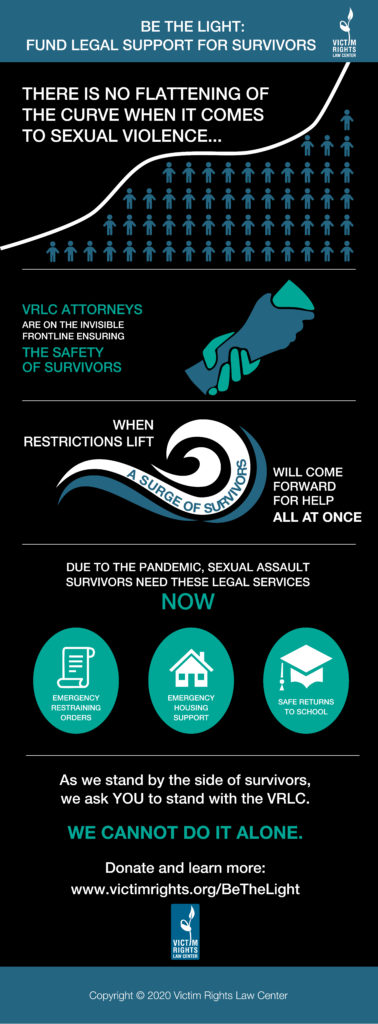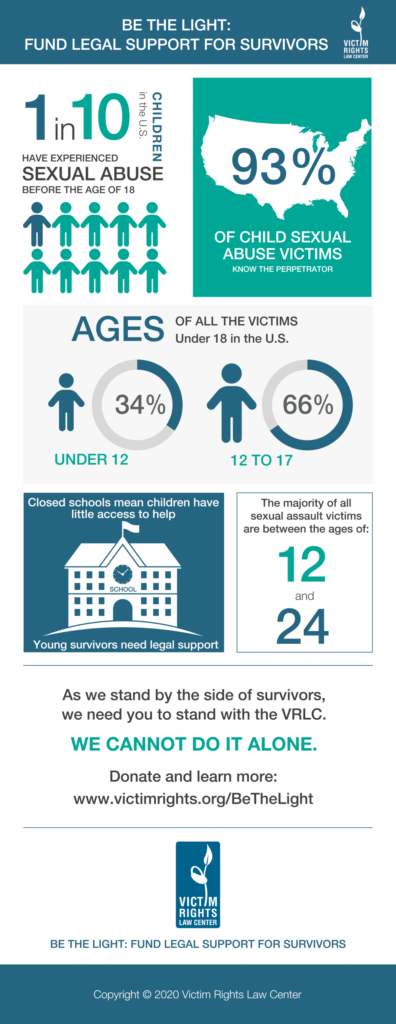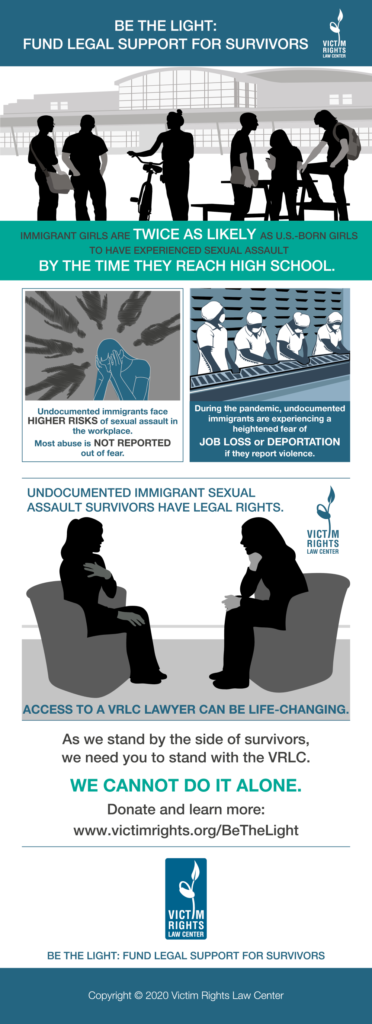The Pandemic’s Impact on Survivors

Sexual violence has not stopped during the pandemic. Reports of abuse initially decreased as many survivors were trapped with their abusers and lacked access to reach out for help privately.
As restrictions have begun to lift, we have seen a 30% increase in calls for legal help since June. We have answered the call to over 200 survivors since the pandemic.
The most prominent needs for survivors are currently:
- Emergency restraining orders for safety;
- Emergency housing support for those facing evictions; and
- Securing a safe return to their education through remote representation.

Child sexual abuse victims are not safe in their own homes as abusers often live with or near them. Without access to schools and summer activities, children have few outlets to disclose abuse and get help.
Kamal’s Story: Kamal is a 9-year-old who was sexually abused by a neighbor. He was afraid to leave his home out of fear of being assaulted again. His VRLC attorney represented him in court virtually and secured a restraining order against the neighbor. As quarantine restrictions have begun to lift, Kamal feels safe riding his bike around the neighborhood again.

Black, Indigenous, and people of color have historically received lower-quality healthcare than white people. BIPOC communities continue to be at an increased risk of getting COVID-19 as a result of systemic health and social inequalities.
Systemic oppression has also historically created barriers for BIPOC to report rape and sexual violence caused by cultural stigmas, institutional racism within the criminal justice system, law enforcement, and healthcare. The pandemic has made it even harder for BIPOC rape and sexual assault victims to access healthcare.

Undocumented immigrants are often targeted for sexual violence by perpetrators who intimidate them into silence by threatening to report their immigration status to law enforcement. Undocumented immigrants are more susceptible to sexual assault in the workplace, but the pandemic has created heightened fear of being jobless or deported. Immigrant sexual assault survivors have legal rights to access help.

In May 2020, the U.S. Department of Education released new Title IX regulations that narrow protections for student survivors during the pandemic. Many of our college clients have returned to their homes all over the world. While these cases have become significantly complex, we are working to account for the new regulations (that go into effect in August) and virtually fight for their rights, so they can safely return to their education post-assault.

Contact Us
Massachusetts
11 Beacon Street, Suite 520
Boston, MA 02108
Phone: (617) 399-6720
Oregon
610 SW Broadway, Suite 308
Portland, OR 97205
Phone: (503) 274-5477
Sign Up For Updates!
Privacy Policy | Disclaimer | Nondiscrimination Notice | Staff Portal | Log In
Copyright © 2024 Victim Rights Law Center
Victim Rights Law Center’s logo is a registered trademark | Tax ID #02-0588944
